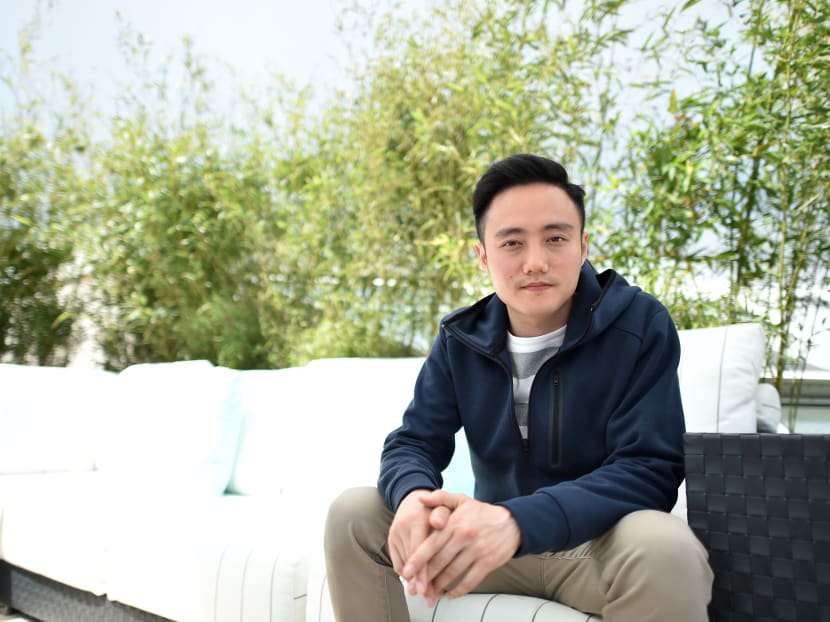Apprentice’s Boo Junfeng says five-year gap between first and second films necessary
SINGAPORE — It took five years for Singapore film-maker Boo Junfeng to present his next showing at Cannes Film Festival, after his debut feature film Sandcastle received critical acclaim in 2010 for International Critics’ Week.

Singaporean director Boo Junfeng's second feature Apprentice was screened at Cannes Film Festival on Monday. Photo: AFP
SINGAPORE — It took five years for Singapore film-maker Boo Junfeng to present his next showing at Cannes Film Festival, after his debut feature film Sandcastle received critical acclaim in 2010 for International Critics’ Week.
But Boo said the length of time was necessary for him to present a work he could be proud of.
“One reason why this second feature took so long is because I made my first film in my mid-20s — and for a long time, I felt like I didn’t have the life experience to make the films the way I wanted them to be made,” he told TODAY.
He added that he spent a lot of the last few years “understanding life and taking myself out of my comfort zones to appreciate things that I wouldn’t otherwise appreciate or encounter”, so he feels he is in “a better place” to work on future projects more confidently. Hopefully, his next project won’t take as long, he quipped.
Asked what his next brainchild would be, Boo said ideas are still preliminary and he has not fully started to properly develop them yet.
Boo’s second feature Apprentice, an official selection at the Un Certain Regard section in this year’s Cannes Film Festival garnered buzz for its controversial content prior to its screening on Monday.
The psychological drama focuses on the relationship between Aiman, a young correctional officer, and Rahim, the chief executioner of the prison they work at. Their friendship became fraught with tension after he found out that the executioner was the one who hanged his father.
It has received positive reviews so far, and the film has been picked up for showings in France, Turkey, Mexico, and Hong Kong and China. In Singapore, it is scheduled for a June 30 release.
Asked how he landed on this storyline, Boo said the death penalty is something he has always been concerned about, but he had wanted to explore the perspective of an executioner or an executioner’s apprentice.
While he initially had “certain ideas”, presumably negative ones, about what these characters would be about in the beginning of the research and writing process, Boo said his impression of them changed when he met some former executioners and spoke to them.
“What struck me most was that I ended up liking them a lot as people,” he shared. “There was this one man that I met who had a very lovable, grandfatherly character, and that completely threw me off. In a way, it challenged me to look deeper into the characters of the film and humanise them.”
He added: “In many ways, the story of Aiman, as he learns about Rahim the executioner, kind of parallels my own writing process — of first approaching the subject from my point of view, and then eventually opening my mind to other perspectives.
On his assessment on the state of Singapore’s film industry, Boo pointed out that there was a time when Singapore films were rushed into production. “Timelines that are expected of a film to be made has always been very tight. For too long, scripts were half-baked before they went into production,” he said.
Still, he sounded a positive note. While the industry is “still in its infancy”, it is developing in a healthy way.
“Each time a film is made it sets a precedence for how things should be done, and new rules are made each time. We presently see a generation of film-makers who care very much about the development phase of a film, and are therefore putting more resources and effort into writing and development,” he pointed out.
“That space that was required for that to happen took a while to arrive, but I think it’s there, and producers are more understanding of the time that is required for films to be fully developed. If we keep at it, and go for quality over quantity, I think we will get there.”
While many in the industry look toward Hollywood as a benchmark, Boo feels that is not necessarily what one should aim for. “I won’t deny that if a film-maker receives true recognition in Hollywood, it would be fantastic for his or her career, and would also bring a lot of audiences to his/her work,” he said.
Still, he noted, there are many ways a film can be made. “In Hollywood-films-saturated Singapore, it is all the more important that we carve out a space for films that are non-Hollywood, and in the process, build audiences for different kinds of films. Most importantly, he added, a film “needs a certain honesty and truth, even in the realm of fiction”.
“If the film comes across honest and sincere, it will stick with the audience.”





